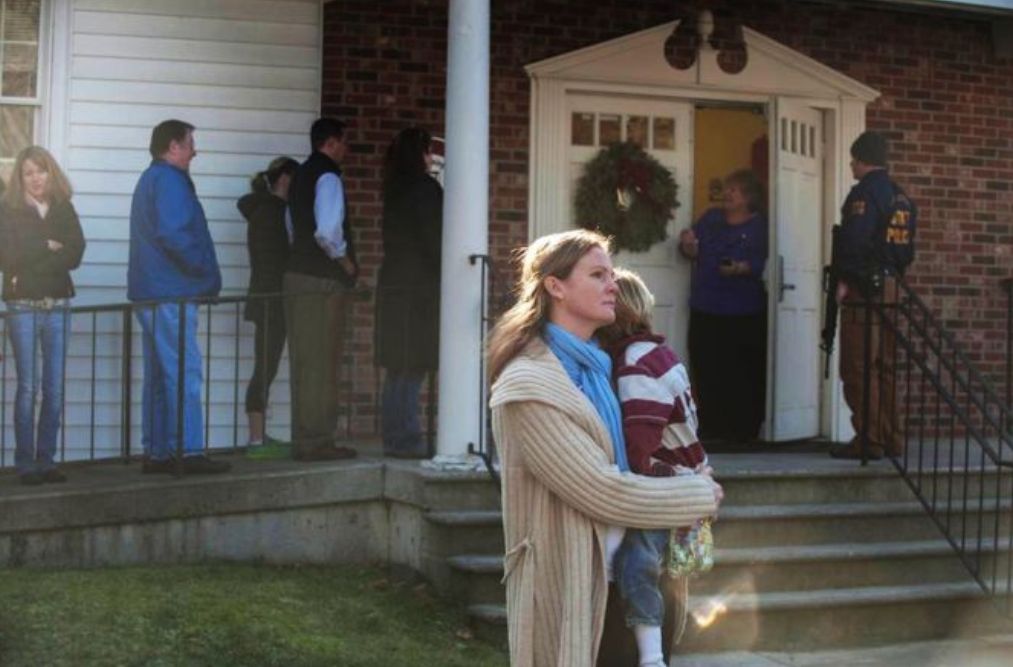As I think about the Sandy Hook shootings, poems from William Blake’s Songs of Innocence and Experience keep reverberating through my head. I think this is because Blake captures, as well as any poet ever has, the tragic clash between childhood innocence and worldly corruption. Blake cares so much about children that his satire kicks into high gear when he sees them being victimized by the world that adults have created.
Blake models the right emotional mixture for us at this time—which in our case is our love for the children in our lives, our lacerating pain at what has happened at Sandy Hook, and our rage at those who refuse to stem the easy flow of guns. Blake, who is ever ready to unleash his savage irony against sanctimonious social guardians, would certainly not spare those who piously cite the Second Amendment and who invoke the concept of Freedom as they do the bidding of the National Rifle Association.
Blake’s poem “The Schoolboy” is directed at school practices that stifle children, not at overt violence against them. But its images of blighted childhood make it relevant today. After all, the surviving Sandy Hook students (not to mention all children traumatized by the news) are also “tender plants” who have been “stripped of their joy in the springing day.”
We do well to worry about what “summer fruits” will result in children who are now aware that violence can strike anywhere and at any time. As Blake rightly asks, “How can a child, when fears annoy,/But droop his tender wing,/And forget his youthful spring?” And how shall we, the adults, “gather what griefs destroy”? Will we find ourselves harvesting “the blasts of winter”?
The Schoolboy
I love to rise in a summer morn,
When the birds sing on every tree;
The distant huntsman winds his horn,
And the skylark sings with me:
O what sweet company!
But to go to school in a summer morn,—
O it drives all joy away!
Under a cruel eye outworn,
The little ones spend the day
In sighing and dismay.
Ah then at times I drooping sit,
And spend many an anxious hour;
Nor in my book can I take delight,
Nor sit in learning’s bower,
Worn through with the dreary shower.
How can the bird that is born for joy
Sit in a cage and sing?
How can a child, when fears annoy,
But droop his tender wing,
And forget his youthful spring?
O father and mother, if buds are nipped,
And blossoms blown away;
And if the tender plants are stripped
Of their joy in the springing day,
By sorrow and care’s dismay,—
How shall the summer arise in joy,
Or the summer fruits appear?
Or how shall we gather what griefs destroy,
Or bless the mellowing year,
When the blasts of winter appear?
The concluding poem in Songs of Experience, “The Voice of the Ancient Bard,” talks of trying to see past “dark disputes,” “artful teasing,” and the “endless maze” and “tangled roots” of folly—which is a good description of our paralyzed response to gun violence. Our policymakers have indeed “stumble[d] all night over bones of the dead.” They “wish to lead others, when they should be led.”
Most Americans—including most members of the National Rifle Association—believe we should have stricter regulations on guns. Is there a chance that, out of this tragedy, we will see the “image of truth new-born”? Will our young people become, not “nipped blossoms,” but “youth[s] of delight”? Will we be able to say to them, “ [C]ome hither/And see the opening morn”?
That is the challenge before us.
The Voice of the Ancient Bard
Youth of delight! come hither
And see the opening morn,
Image of Truth new-born.
Doubt is fled, and clouds of reason,
Dark disputes and artful teazing.
Folly is an endless maze;
Tangled roots perplex her ways;
How many have fallen there!
They stumble all night over bones of the dead;
And feel—they know not what but care;
And wish to lead others, when they should be led.



2 Trackbacks
[…] Songs of Innocence Destroyed […]
[…] Songs of Innocence Destroyed […]